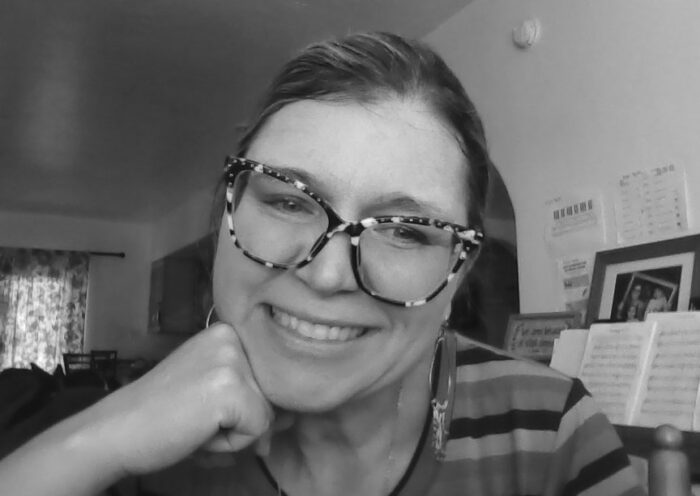What to Expect
by Kristen Hoggatt-Abader
The only response
to a child’s grave is
to lie down before it and play dead.
—Bill Knott
Black boys getting shot in Harlem—that’s certain,
waiting like a germ between our taste buds for the chance to begin a plague. The news
reports in a six-sentence quip, and all is revealed: street party, crossfire, shot in the head.
Pity, to be 13, black and poor in New York’s only home
that welcomes such folk, its skyline dotted with decrepit roofs and
a quick buck. We keep our mouths closed, though we sigh (“Not
again.” “No, not again!”) when we hear of the boy’s demise. They
won’t report this the next city over—let alone the next state.
How many bullets have reduced a black body to mere flesh&bone?
In an instant, we board the subway, our hands around pocketbooks
with force as we traverse, in and out and underground,
the network of tracks like sutures across our shoulders,
linking the city and our lives: Lord, please, let it not be our child.
What to Expect
Kids getting shot in colonial New England—
Wait. What? The news yanked out our tongues
and wrapped it around spreadsheets and pizza stones,
calling out to our little ones in a hollow timbre,
their fresh bodies close, breathing their bubble gum,
breathing scabbed knees and muddied shoes. If only
the killer had gotten counseling. If only gun laws were
just so. Our minds wrapped around what-ifs
until the worst of us remained convinced it was a hoax.
Surely our precious 6-years-olds are not slaughtered with
automatic weapons—these bodies, this pink flesh.
Something else must explain it: conspiracies, trauma actors,
the media! We always blame them, rolling out blankets
to snuff out what burns us: Lord, please, let it not be our child.
What to Expect
Peshawar, Pakistan
Do children get shot in that corner of the world? In the city of
flowers? It is, by all means, extreme: summers boil, winters
witch-tit cold, dust, hail, and when the gunmen crash through
the doors, it’s another kind of storm brewed in the landlocked valley,
stirred by the impossible wind that descends the peaks.
One hundred plus children, gone. Children—dead and gone. The
smartest ones barricaded the door, a lesson in physics: Angle of
crossbeam? Density of wood? Not enough to stop men from
crashing it down in praise of God. In the city of flowers,
workers load the ambulance with blood stain. In the city of flowers,
mothers unveil themselves to wrap the wounds of little boys in pink, blue,
orange, red. In the city of flowers, the MPs hug their M16s,
skullcapped fathers scream. And the storm rages on, in the city of flowers,
in the cities of our first born: Lord, please, let it not be our child.
BIO
Kristen Hoggatt-Abader is the author of the poetry chapbook Arab Winter and the former Ask a Poet advice columnist for Drexel University’s The Smart Set. She is currently a Senior Lecturer at the University of Arizona in Tucson and a fourth-year Ph.D. candidate in rhetoric and composition. Her work has also appeared in The Ledge Magazine, Nimrod International Journal, and Poetry Porch. More of her work can be found at khoggattabader.com
















